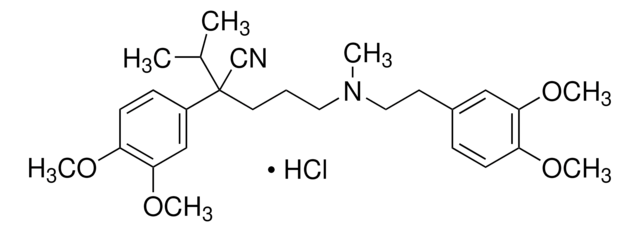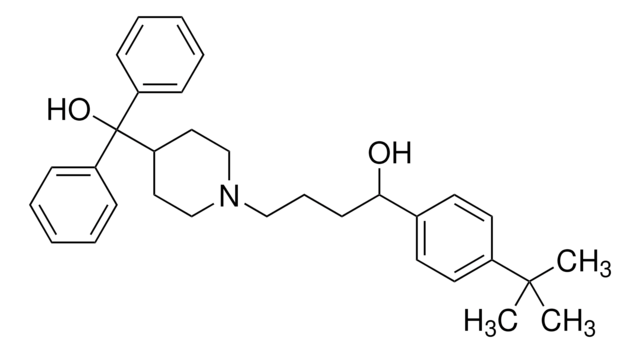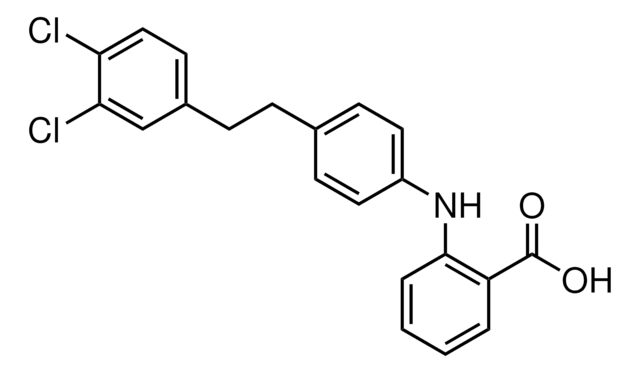M5060
E-4031
≥98% (HPLC), lyophilized powder
Synonym(s):
N-[4-[[1-[2-(6-Methyl-2-pyridinyl)ethyl]-4-piperidinyl]carbonyl]phenyl]methanesulfonamide dihydrochloride
About This Item
Recommended Products
Quality Level
assay
≥98% (HPLC)
form
lyophilized powder
storage condition
desiccated
technique(s)
cell culture | embryo: suitable
color
white
solubility
H2O: soluble
storage temp.
−20°C
SMILES string
Cl.Cl.Cc1cccc(CCN2CCC(CC2)C(=O)c3ccc(NS(C)(=O)=O)cc3)n1
InChI
1S/C21H27N3O3S.2ClH/c1-16-4-3-5-19(22-16)12-15-24-13-10-18(11-14-24)21(25)17-6-8-20(9-7-17)23-28(2,26)27;;/h3-9,18,23H,10-15H2,1-2H3;2*1H
Inchi Key
ZQBNWMFBOSOOLX-UHFFFAOYSA-N
Application
- human ether-a-go-go-related gene (hERG) blocker in human-induced pluripotent stem cell-derived cardiomyocytes (hiPSC-CMs)
- IKr blocker in long QT syndrome (LQTS) induced pluripotent stem (iPSCs) embryoid bodies
- IKr blocker in rat ventricular myocytes
Biochem/physiol Actions
Features and Benefits
Storage Class
11 - Combustible Solids
wgk_germany
WGK 3
flash_point_f
Not applicable
flash_point_c
Not applicable
ppe
Eyeshields, Gloves, type N95 (US)
Certificates of Analysis (COA)
Search for Certificates of Analysis (COA) by entering the products Lot/Batch Number. Lot and Batch Numbers can be found on a product’s label following the words ‘Lot’ or ‘Batch’.
Already Own This Product?
Find documentation for the products that you have recently purchased in the Document Library.
Customers Also Viewed
Our team of scientists has experience in all areas of research including Life Science, Material Science, Chemical Synthesis, Chromatography, Analytical and many others.
Contact Technical Service













